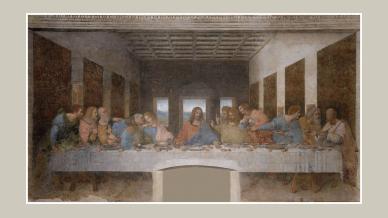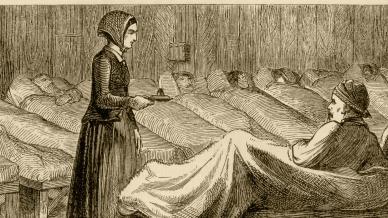In a list of most quotable (and miss-quotable) movies, Casablanca is surely near the top. The end scene alone is full of famous one liners. The tension builds to a climax, as the affair between Rick and Ilsa is rekindled. Standing on the runway in the fog, with the Germans closing in, Rick is left with a terrible dilemma. Does he stay with his true love? Or does he compel Ilsa to fly off with her resistance hero husband?
Spoiler alert. Anyone hoping for a happy ending is soon disappointed. “You’re getting on that plane with Victor where you belong,” says a resolute Humphrey Bogart to a tearful Ingrid Bergman. “Here’s looking at you, kid.”
Was there ever any doubt that Rick would ‘do the right thing’? Given the film was produced in 1943, the answer was no. Of course, there is the context to think about, as Casablanca was released at the height of World War II. But, more importantly, Hollywood in the 1940s was bound in a censorship straitjacket. The notion that a married woman would elope with her lover, rather than return to her husband, was utterly taboo. That was ‘where you belong’. In fact, the only reason that Rick and Ilsa were allowed (by the censors) to hook up in Paris is because they both believed Viktor to be dead.
Extra-marital affairs were just one of the licentious subjects barred by the severe guidelines that constricted scriptwriters in Hollywood between 1934 and 1968. Surprisingly perhaps, the Hays Code, named after its originator Will H. Hays, long-standing president of the Motion Picture Producers and Distributors of America (MPPDA), was not a government initiative. The rules were adopted voluntarily and enforced rigidly by the major studios, who were afraid of handing censorship over to federal or state oversight. Far better to self-regulate than invite creative suppression…
Wholesome, family viewing
While the UK had introduced a film rating system since 1912, every US film had to be suitable to every viewer, no matter their age. The First Amendment, which protects free speech, didn’t apply to the movie industry.
Moreover, Hollywood was viewed as a degenerate influence on society, due to a number of high-profile scandals and East Coast snobbishness towards Los Angeles. There was a genuine fear that films could instruct or inspire criminal activity, adultery, perversion, sin, etc among less educated viewers. Official guidelines from the MPPDA aimed to eliminate ‘vulgarity and suggestiveness’. They recommended special care around “Theft, robbery, safe-cracking, and dynamiting of trains, mines, buildings, etc. (having in mind the effect which a too-detailed description of these may have upon the moron)”.
Many states were still segregated and had their own tolerances on portraying religion, morality and the law. To avoid reshooting scenes for 52 different states – or having them ‘cancelled’ altogether – producers followed the code.
In 1941, the photographer A.L. Whitey Shafer parodied the things ‘Though Shalt Not’ portray in Hollywood films, including a dead man, the inside of a woman’s thigh, gambling, an exposed bosom, a pointed gun etc. Shafer was threatened with a fine, which rather proved his point.

No closing Pandora’s Box
After the Second World War, the rapid growth of television started to undermine the power of the movie makers. A court overturned the ruling that excluded movies from the First Amendment. Studios no longer owned cinemas, which loosened their grip further. International films, from the UK and Europe, showed Americans the kind of pictures they wanted to see.
Eventually, the code was replaced by a rating system in 1968. The following year, Midnight Cowboy became the first adult movie to win the Best Picture Oscar for its portrayal of pimps and con men in New York – a storyline that would never have survived Hay’s censorship.
Nowadays, the lines between right and wrong in films are much more blurred. Anyone who has watched the Sopranos will know that the mafia characters do awful things all the time and get away with it. The police, judges, politicians and clergy in modern TV series are often portrayed as corrupt. In the Marvel films, the heroes are usually deeply flawed, while their adversaries are clever, funny and cool. Sure, good overcomes evil in the end, but there’s no happy ever after.
Are we better off today than audiences in those wholesome, golden years of Hollywood? If there were a re-making of Casablanca today, perhaps Rick would get on that plane with Ilsa after all.
Inspired? For more food for thought, why not become a member for £15 a year and enjoy our weekly online lectures. Click the button below for more information and to become a member.
















